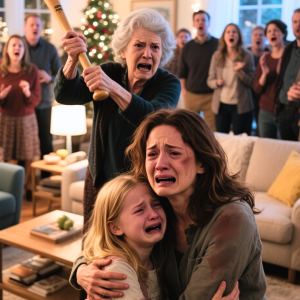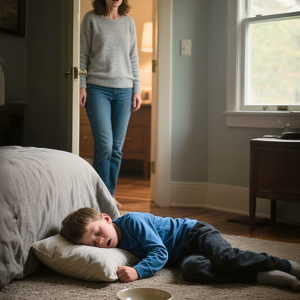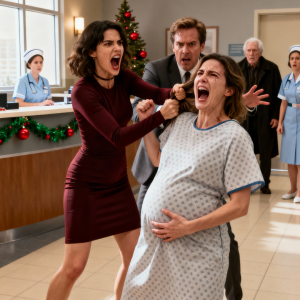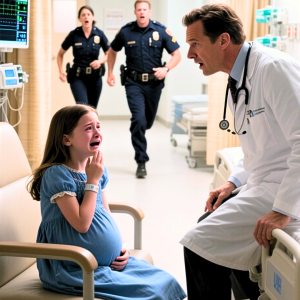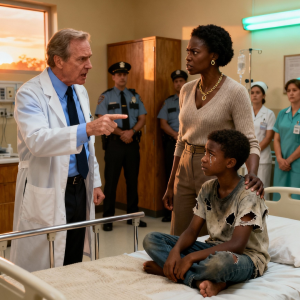
The afternoon sun burned over the busy streets of downtown Seattle.
People brushed past each other, their eyes fixed on their phones, too distracted to notice a small girl sitting by a grocery store entrance. Her clothes were tattered, her hair messy, and in her arms lay a baby wrapped in an old blanket, crying weakly.
“Please, sir,” the girl whispered as a man in an expensive suit passed by. “I’ll pay you back when I’m grown up. I just need a small box of milk for my brother. He’s hungry.”
The man stopped. His name was David Lawson, a real estate millionaire with a reputation for being tough and uncharitable. People said he only cared about business, never people.
“Where are your parents?” he asked, frowning.
“They’re gone,” she murmured. “Please, just milk.”
For a moment, David hesitated. Then he knelt beside her. The baby’s lips were pale, and the girl’s frightened eyes showed both fear and courage. Something inside him stirred — a memory of his own hungry childhood before success found him.
He stood and turned to the store clerk. “Get her whatever she needs — milk, food, diapers. Everything.” He handed over his credit card.
The onlookers whispered in disbelief. “Isn’t that David Lawson? The real estate guy?”
As the clerk filled her bag, the girl looked up. “I’ll pay you back someday,” she promised.
David smiled faintly. “You already have,” he said.
He left, not realizing how deeply that brief encounter would change both their lives.
Months later, David founded the Lawson Children’s Fund, offering food and education for underprivileged kids. He never spoke about the reason, but the memory of that girl lingered.

Meanwhile, the girl — Lily Turner — was taken to a shelter with her baby brother, Noah. The foundation unknowingly funded her schooling. With steady support, Lily finished high school and earned a college scholarship.
She worked nights to provide for Noah, who grew up healthy and full of life.
Years later, at twenty-two, Lily attended a charity event hosted by the Lawson Foundation. Nervous but determined, she clutched her résumé and watched David walk in. He looked older, but she recognized him instantly.
After the speeches, she approached him. “Mr. Lawson,” she said softly. “You once bought milk for a hungry baby and his sister. That was me.”
He stared for a moment before recognition dawned. “The little girl,” he said, astonished. “You kept your promise.”
“I did,” she smiled. “I finished school, and I want to work with your foundation — to help other kids like me.”
David offered her a position immediately. Over time, Lily became the heart of the organization, helping it expand across the country.
The man once known for being cold was now admired for his compassion — all sparked by one act of kindness.
Five years later, Lily stood on stage at the foundation’s annual gala, Noah cheering from the audience. David watched proudly as she began her speech.
“When I was a child, I begged a stranger for milk,” she said. “That man didn’t just feed us. He gave us a future.”
The room fell silent, then erupted in applause.
Afterward, David approached her. “You kept your promise again,” he said with a warm smile.
She laughed softly. “I told you I’d pay you back when I grew up.”
He shook his head. “You’ve done more than that, Lily. You’ve made kindness contagious.”
That night, Lily announced a new program — The Milk Promise — to provide nutrition for infants in struggling families.
Years later, after David’s passing, the foundation thrived under Lily’s leadership. In its lobby hung a plaque:
One act of kindness can change a life — or thousands.
Beside it was a photo of a man kneeling beside a girl with a baby in her arms — the moment everything began.
